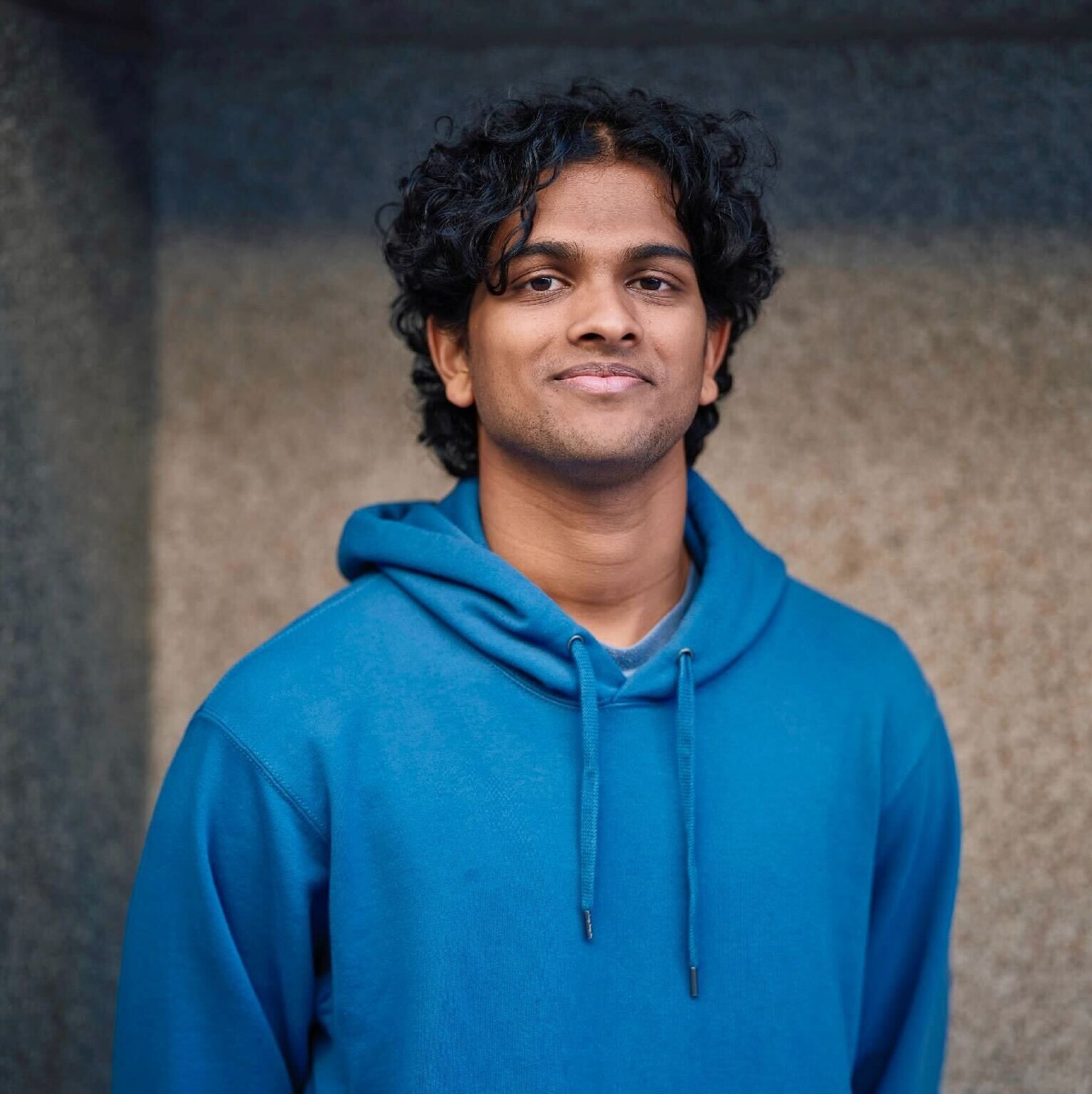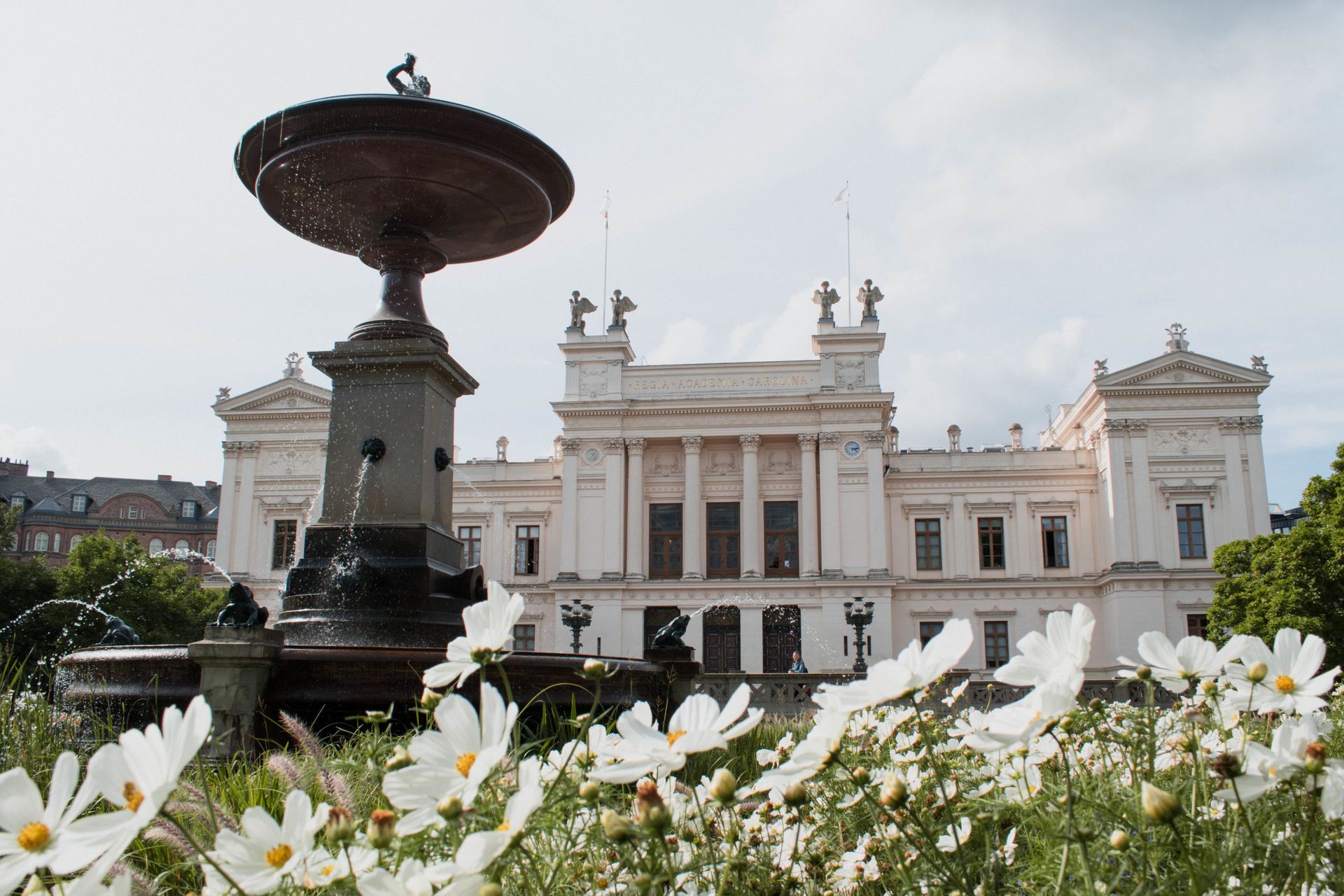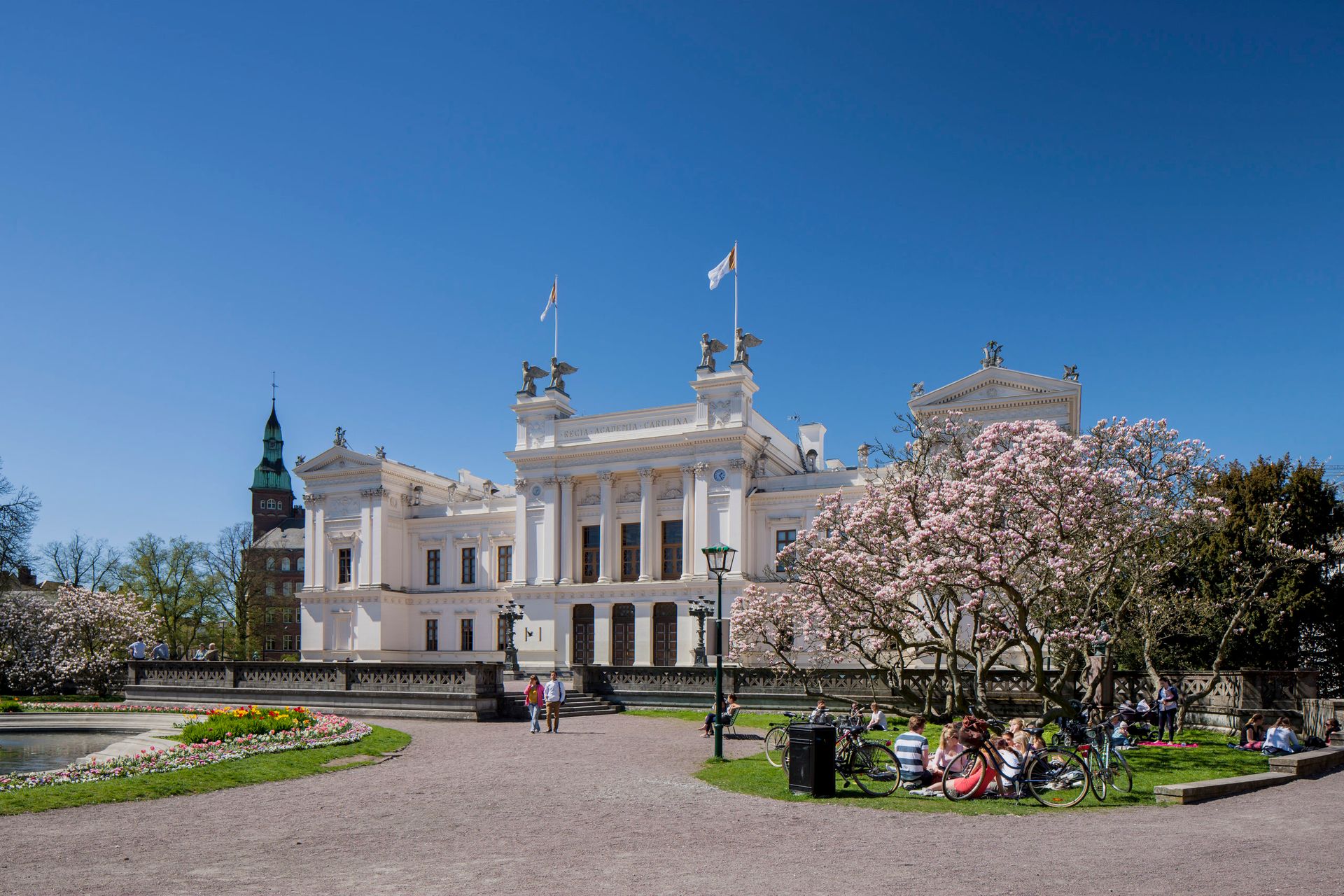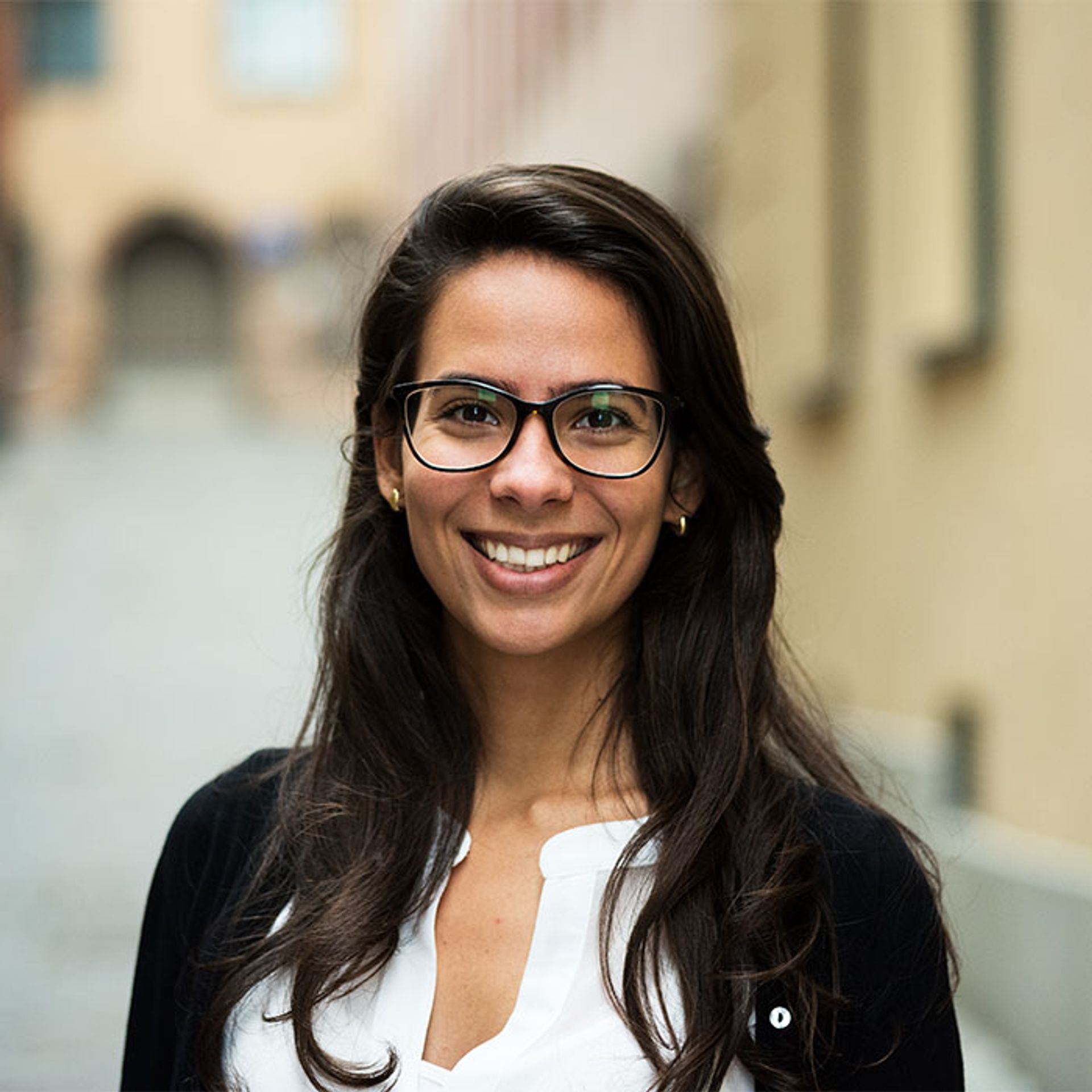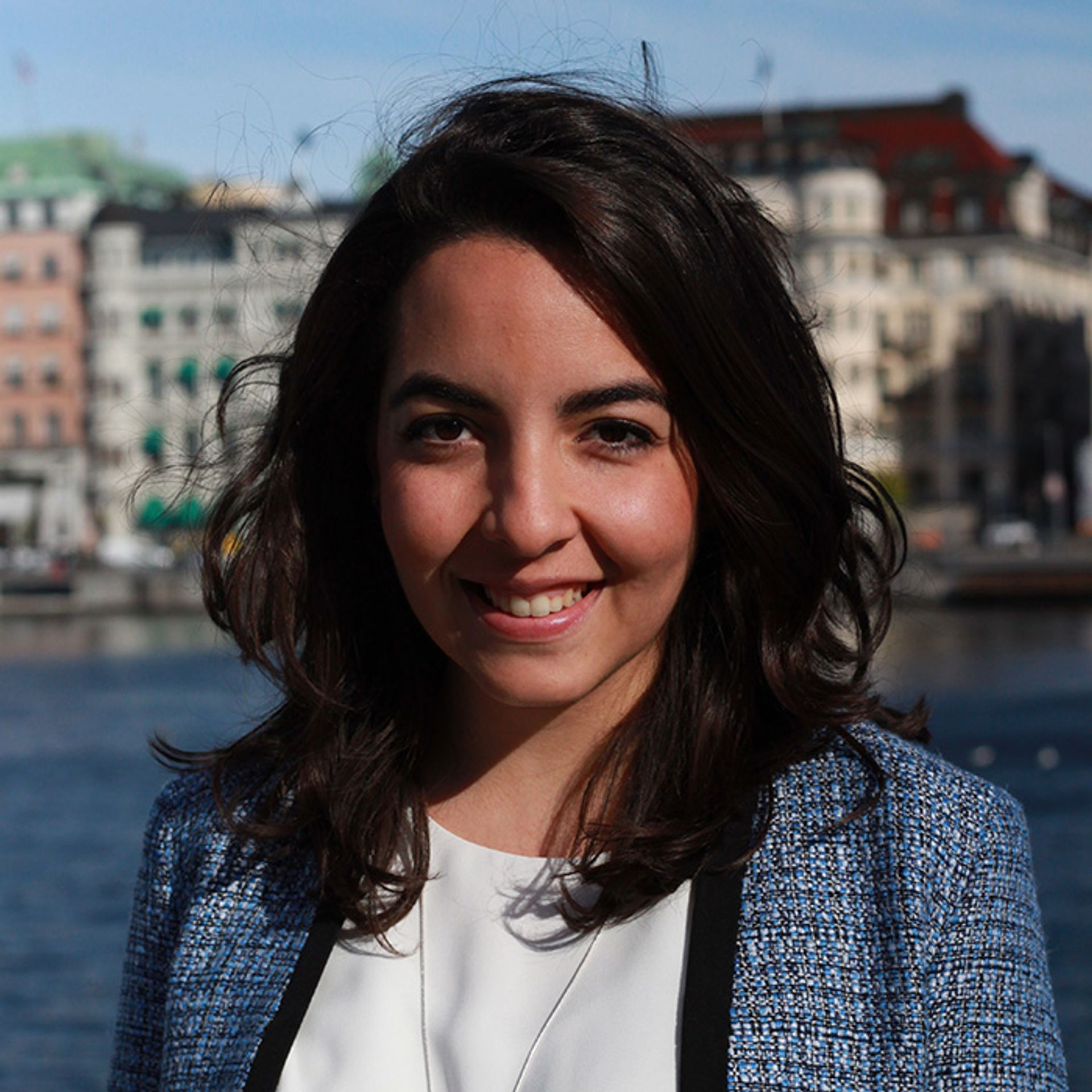
Written by Ravindu
30 Nov 2024
Earlier this month, I had the pleasure of sitting down with Chandara (you can read more about her here), a fellow digital ambassador, who is currently pursuing her master’s in International Human Rights Law at Lund University. This conversation happened days after my interview with Azhiemi, another fellow ambassador, in which we talked about life in Umeå, far more north compared to Lund. Fresh out of hearing his experience, I was intrigued by how much different, or maybe similar, living in the Southern parts of Sweden is like. I loved our entire chat, but my favorite part was all the advice Dalaa gave for students who wanted to come to study in Lund and Sweden in general, which you can find towards the very end of our conversation…
To guide the conversation, I focused on these key areas:
- Academic life: What studying in Lund is like.
- Climate: How the cold weather shapes daily life.
- Student culture: Socializing, traditions, and building connections.
- Things you love: Highlights of living and studying in Lund.
- Things you would change: Challenges and room for improvement.
- Advice for upcoming students: Tips for those considering Lund as their next destination.
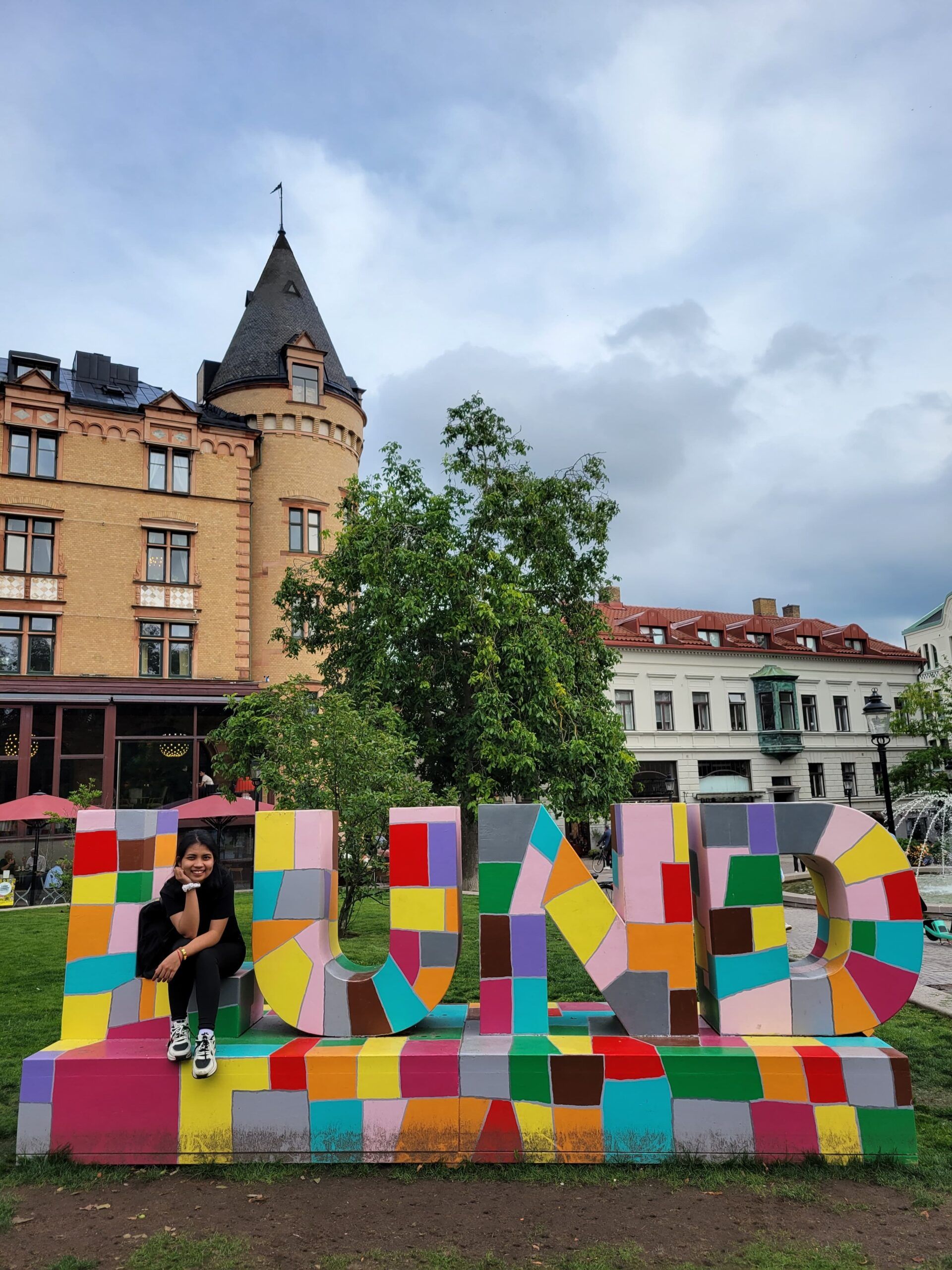
Q: Can you introduce yourself to our readers?
“Hi! My name is Chandara. I come from Cambodia and I’m doing my masters in Lund university in International Human Rights Law with the scholarship support from The Raoul Wallenberg Institute of Human Rights and Humanitarian law.”
Lund is a charming student city located in the southern part of Sweden, in the Skåne region. It’s just 10 minutes away from Malmö and 40 minutes from Copenhagen, offering a unique blend of Swedish and international influences. Known for its rich academic history, Lund is home to one of Sweden’s oldest university. Though not typically known for heavy snowfall, Lund experienced an exceptional winter last year, a reminder of how unpredictable Swedish weather can be, even in the south.
Q: What do you enjoy most about living?
“One thing I enjoy the most is the city itself,” Dalaa said with warmth in her voice. “It’s quiet small, cozy, and student-oriented. In a sense, you feel very safe here, and wherever you go, you meet students. And even though it’s small, there’s a lot to do. The city is very good when it comes to cultural and social events. Like, you can really feel the vibe of the celebrations, and it never feels overwhelming, like in other bigger city.”
She added, “In the summer, they have the events organized by Lund Kommun. There’s a booklet from Lund Kommun, and they have everything happening from June 15th to August 15th—They have theaters, art galleries, dancing events, things like that. And last month we had a culture night, which was also organized by the Lund Kommun, so we got access to multiple museums free of charge.”
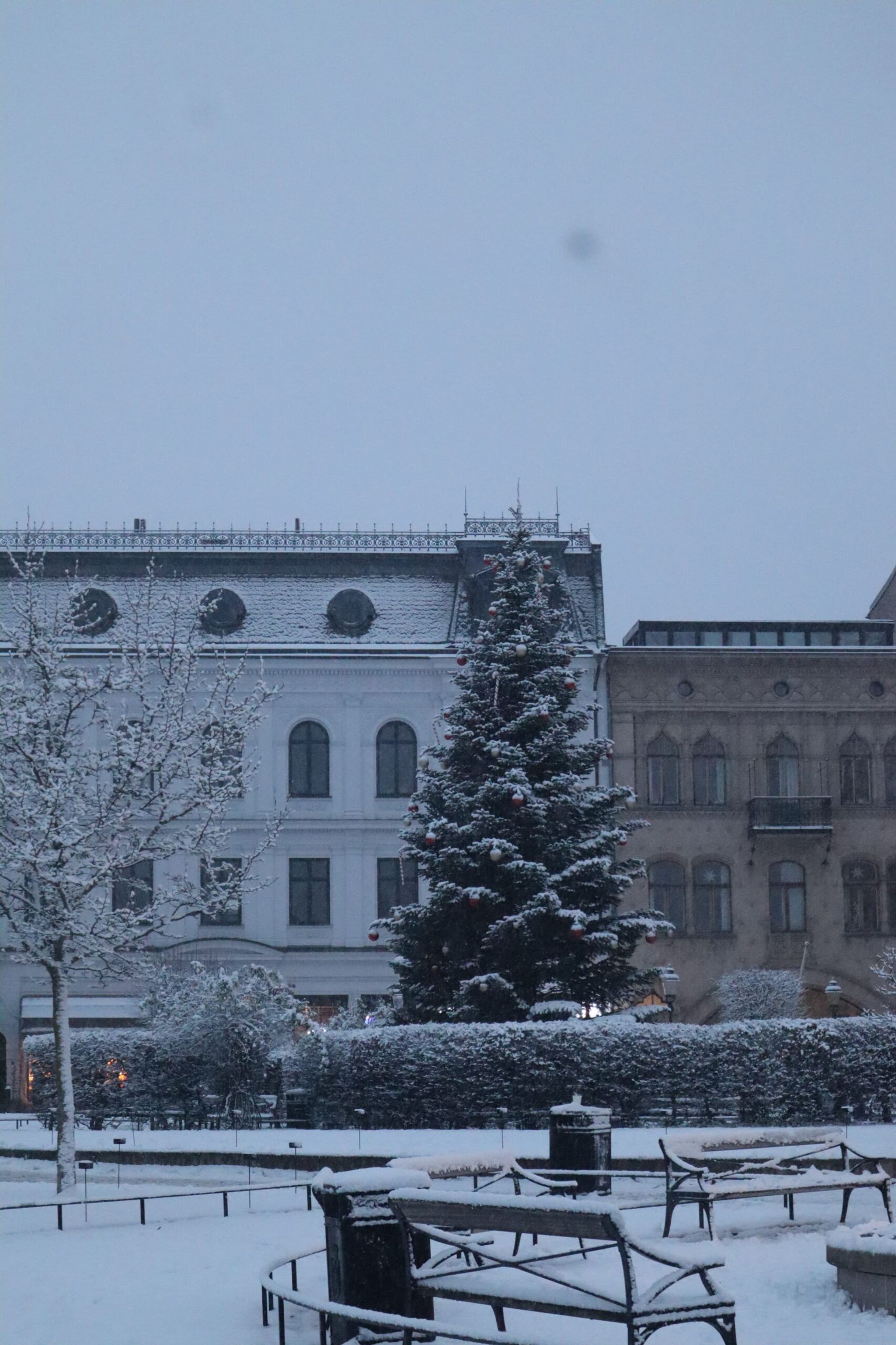
Q: Lund is known as a university town, right?
“Yes, I would say so,” Dalaa confirmed. “Lund University has something called Student Nations, which is a big part of university culture here. I don’t think every Swedish university has them, I know Uppsala does. The Nations are activity-oriented, not academic—they’re like student clubs, and they organize events, parties, and clubs.”
Dalaa mentioned that most students here are involved with one Nation or another, and the housing system is also connected to that.
She explained, “In Lund university we have 2 kinds of accommodation: one is provided by the Lund university, but the other is something called AF Bostäder. To get housing through AF Bostäder, you have to be a member of a Nation. That’s why so many students are part of a Nation. The university housing is more expensive—in my first year, I stayed in a corridor room provided by the university, which cost me over 5000 SEK. Now, I live in a room through AF Bostäder, which only costs me around 3600 SEK a month.”
Q: Lund University is close to bigger cities like Malmö and Copenhagen. Would you say that Lund has everything you need, though?
“I think so,” Dalaa replied. “I’ve never really thought, ‘Oh, I need to go to Malmö for that…’ Oh, wait- maybe for saunas.” She paused and laughed, adding, “I mean the kind where you swim in the sea and then go into the sauna. We don’t really have that here in Lund, as far as I know.”
I laughed and said, “I’ve only been to a sauna at my gym, so I can’t really relate!” She chuckled too before continuing, “Yeah, I guess that’s a bit of a Swedish thing you’ll find more closer to the coast.”
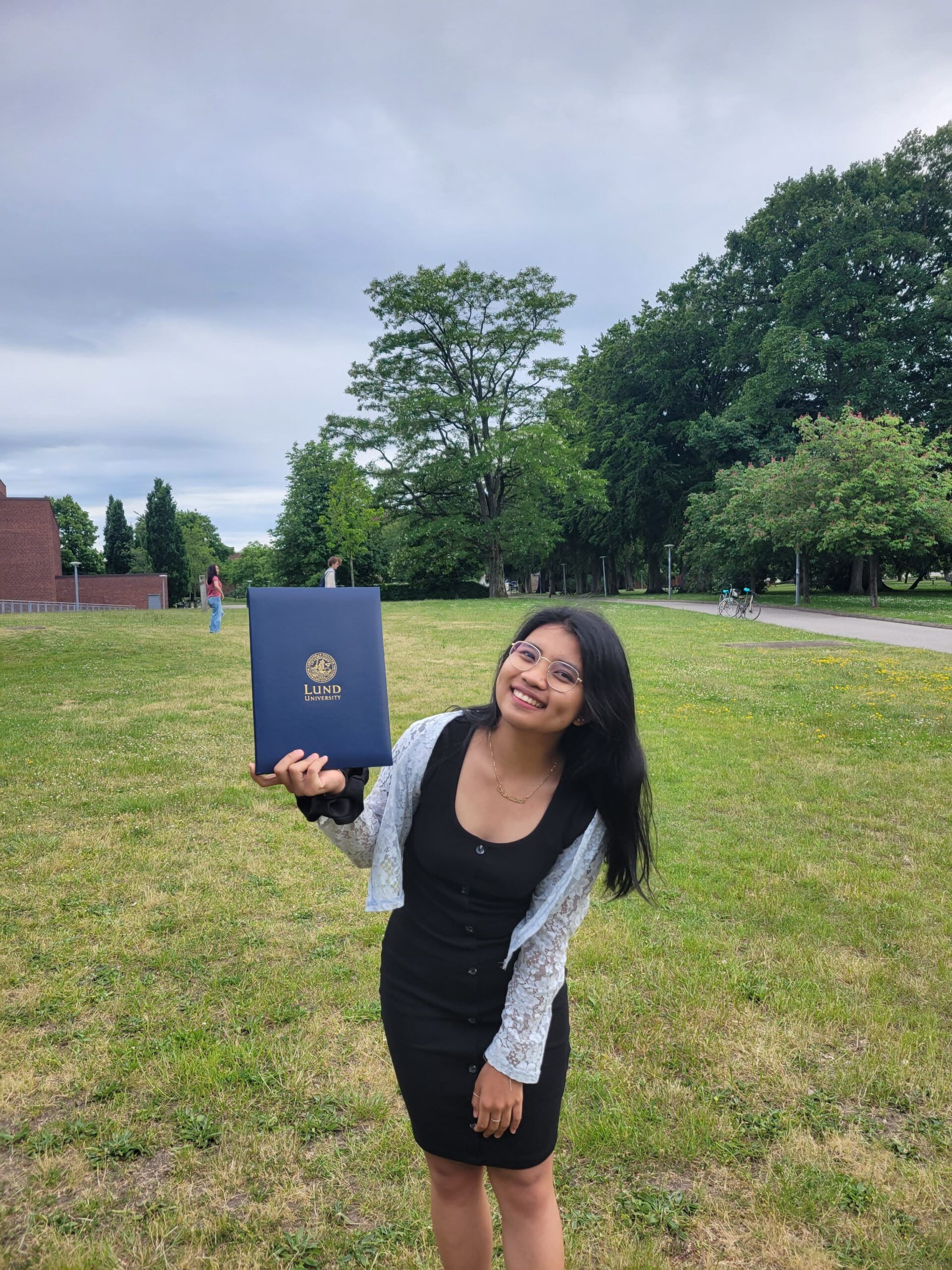
Q: How tight-knit is the student community in Lund?
“I would say it depends on the person, but whether there is a space for you to be social in lund, defientely! With student Nations, and other activities. If you are very outgoing and social, of course you feel the student community more. There are a bunch of times where I go out and randomly run into students I know, that’s how small Lund is”
Q: What were the biggest challenges you faced when coming to Lund?
“I don’t know… maybe, i would say the job market? Finding a job, whether part time or full time, is tough,” Dalaa admitted. “Since it’s a small city, there aren’t that many big companies to work from, and if you want to work in something like a restaurant or a café, they expect you to know Swedish. But if you compare with a larger city like Malmo, or Stockholm, there’re more opportunities there with them being more internationalized and accepting English speakers without Swedish knowledge more.”
I mentioned that I have a quiet a similar situation here in Skövde as well, where Swedish language is asked for when looking for a part time job.
She also talked about how the darkness in the winter was challenging at first. “I would say when I moved here, The darkness in winter was also quite hard to adapt to. Even though I live in the south it does still get dark early during the winter, and that requires you to adapt Another challenge was the Swedish bureaucracy—things like opening a bank account and getting a Swedish ID. The paperwork was complicated, and the first few months were pretty much spent dealing with that.”
When I asked how she found information about these processes, Dalaa said, “Yeah, I did look at some Study in Sweden guides and blogs, but the university was really helpful too. They send emails with all the important information.” She also mentioned how she met a fellow senior student from Cambodia, and getting information from them was also very helpful.
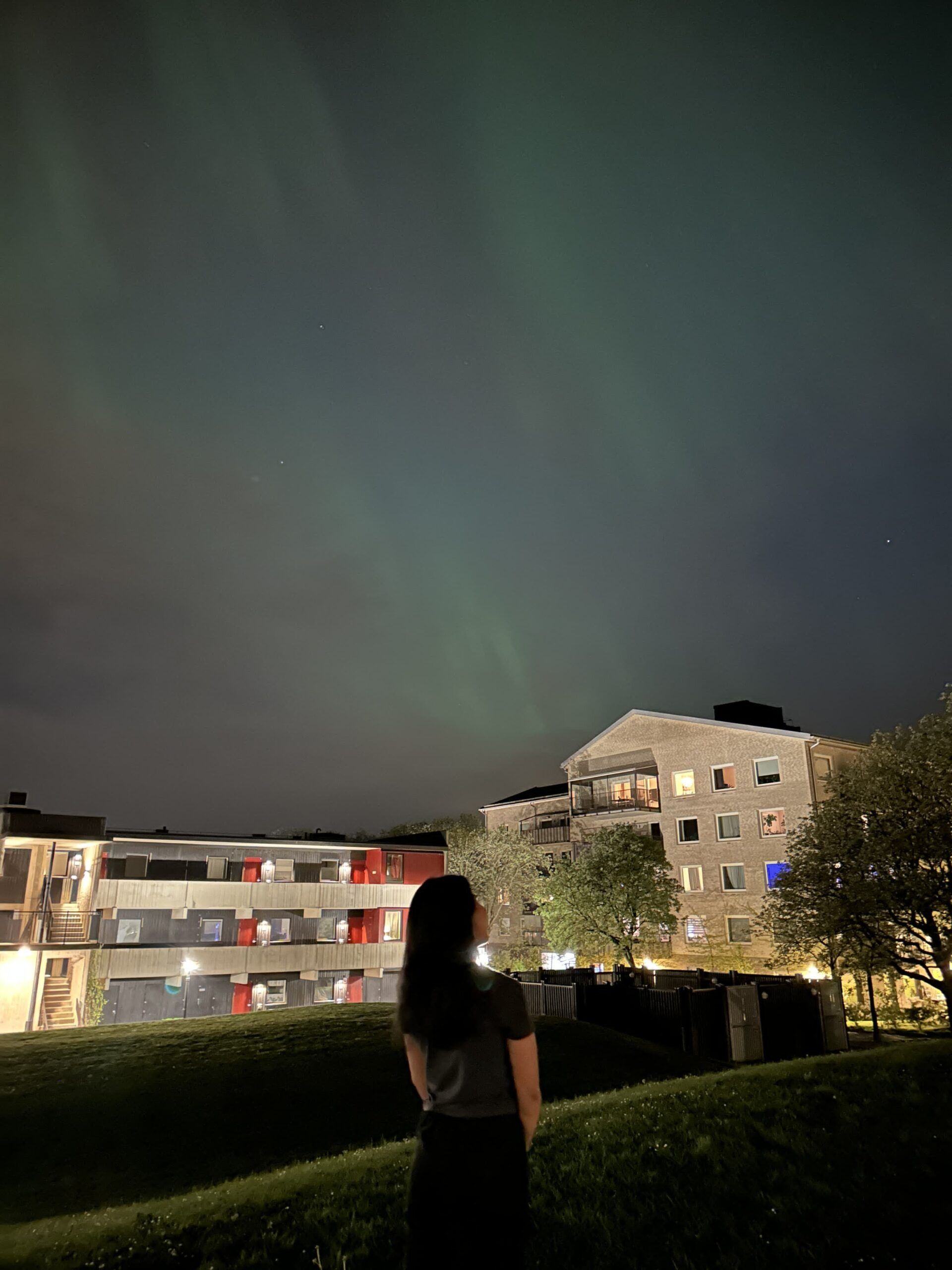
Q: Would you recommend Lund University to other students considering studying abroad?
“Of course!” Dalaa said, and we both laugh. I asked her why. “Lund is considered a pretty prestigious univeristy—I think it’s consistently ranked among the top 100 universities in the world, not just in Sweden. It’s an amazing place to study, and the student life is great. You never feel isolated. If you’re into small cities, its perfect for you, and if you love big cities, its still just a little while away form big cities like Malmö and Copenhagen.”
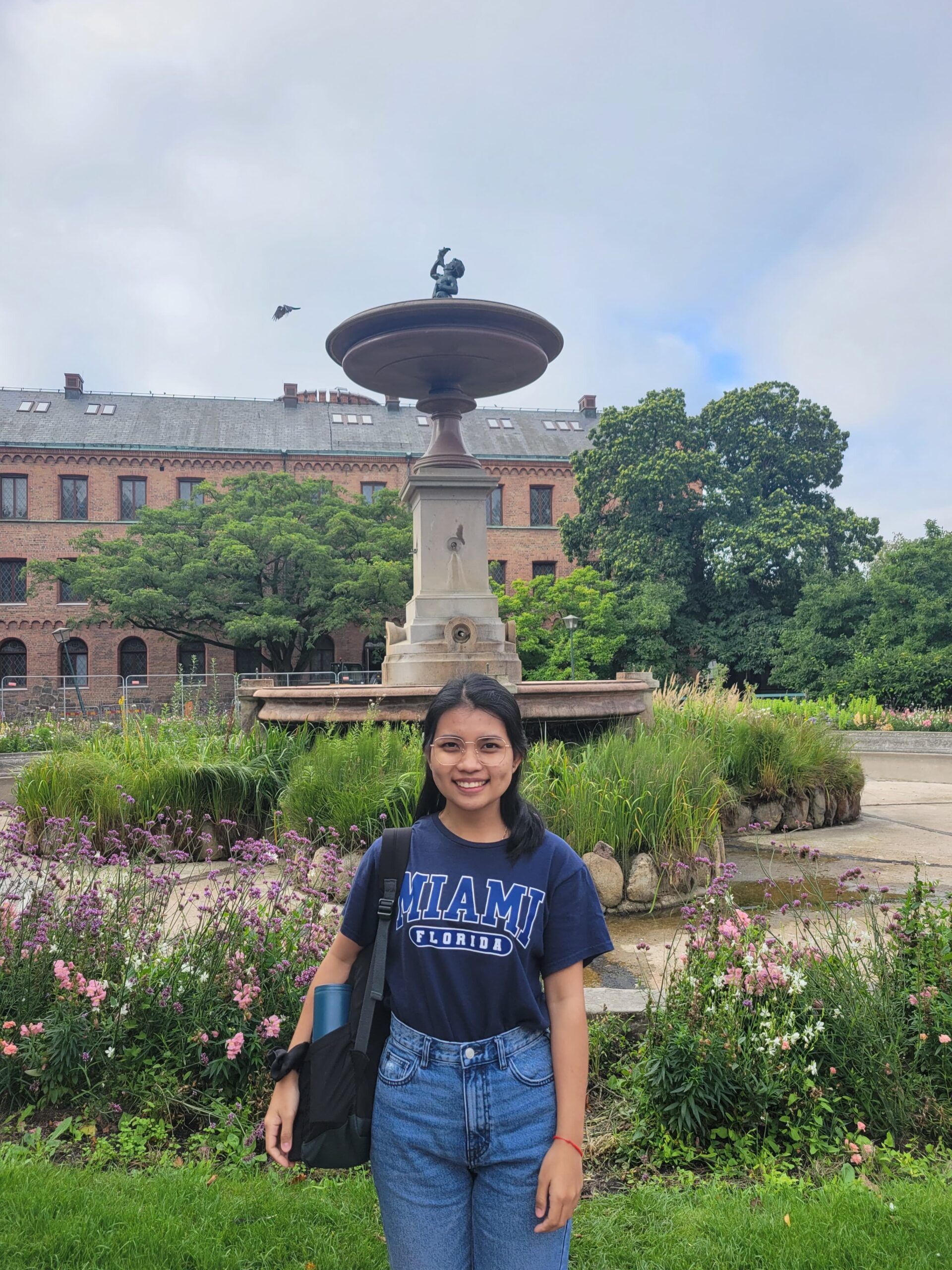
Q: What advice would you give to students coming to Sweden for the first time?
1. Set realistic expectations
“I would say first,” Dalaa said, “set the realistic expectation of both yourself and Sweden. Like every other country, Sweden has its positives and challenges. It’s not always a walk in the park”
2. Embrace uncertainty and reinvent yourself
“Moving abroad is a great chance to reinvent yourself,” Dalaa emphasized. “You’re starting fresh in a new place, surrounded by a completely new group of people. It’s a chance to be whoever you want to be.”
3. Learn to be independent and brave
She pointed out, “Another one is to learn how to be by yourself. A loft of things happen but don’t wait for someone to always be by yourself. Learn to be independent and brave, otherwise you will miss out by waiting for other to do things with you.” I definitely agree with this one. So many of the new friends I made, I met at events where I went alone.
4. Don’t rely on others to join you—go solo if you need to!
Dalaa laughed as she said, “if you want to go to an event but no one wants to come, you can always find new people at the event, so don’t be dependent on others. If you want to do something, do it by yourself!
5. Make learning Swedish a priority
“And definitely, definitely make learning Swedish a priority,” Dalaa stressed. “It will make your life so much easier.” She went on to say how even though English is widely spoken in Sweden, understanding Swedish will help you connect with people and make daily life smoother, not to mention how it will make finding a part time job much much easier.
6. Budget wisely—Sweden can be expensive
“And definitely budget very wisely, because Sweden’s cost of life is pretty high, but if you budget wisely its actually pretty easy to live as a student in Sweden.” She also mentioned how cooking food on our own as opposed to always eating out will save you a lot in the long run.

Post Interview thoughts…
As Dalaa shared her experiences, it was clear that Lund offers a unique blend of student life, cultural richness, and academic excellence—alongside its fair share of challenges, like any place. Her advice, especially on embracing independence, setting realistic expectations, and learning Swedish, provides invaluable insights for anyone considering studying in Sweden. Whether you’re drawn to the vibrant student life, the city’s proximity to Malmö and Copenhagen, or the opportunity to reinvent yourself abroad, Lund seems to have something for everyone.
